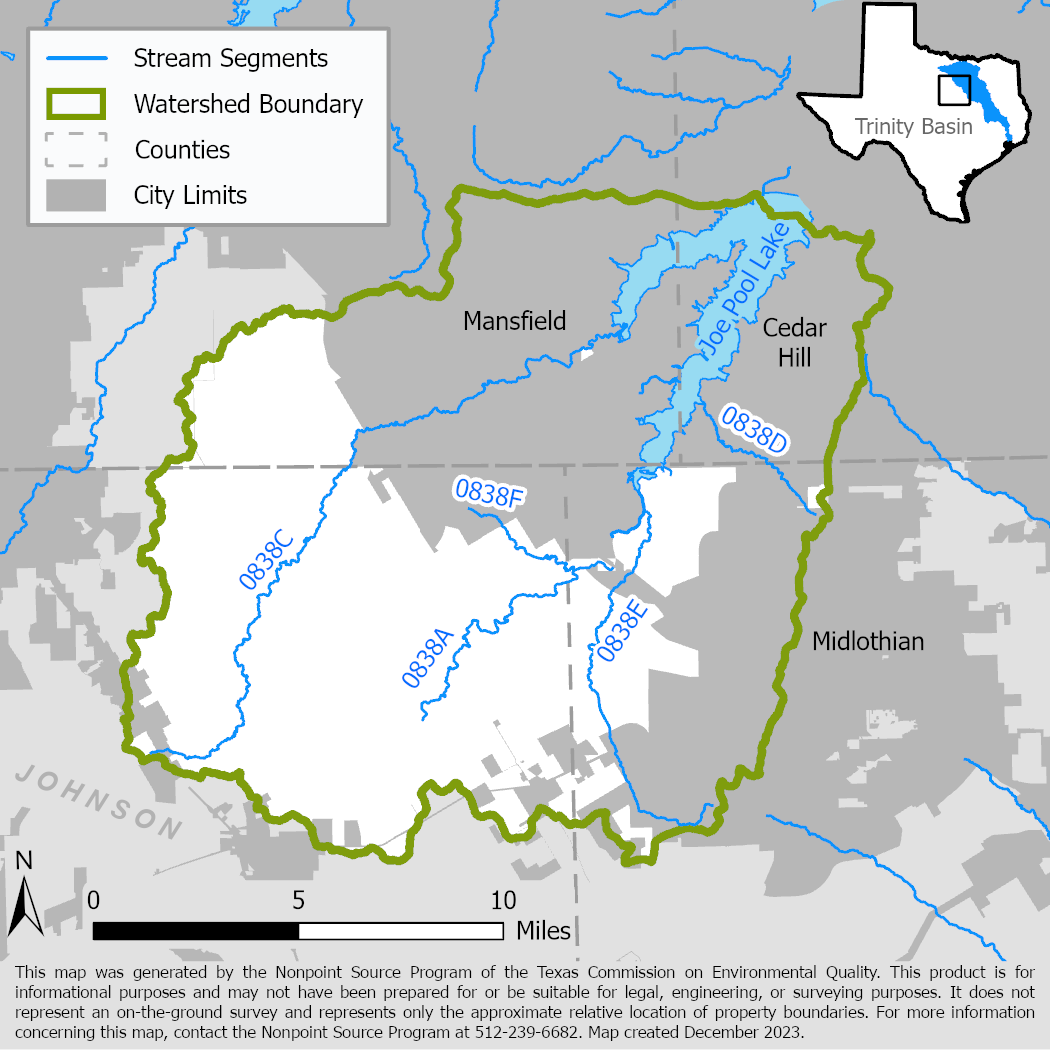Joe Pool Lake: Developing a Watershed Protection Plan
Trinity River Authority and stakeholders completed a two-phased project to develop a watershed protection plan.

On this page:
Project Area
River Basin: Trinity
Water Body: Joe Pool Lake (0838)
Location: Dallas, Ellis, Johnson, and Tarrant counties
Background
Joe Pool Lake and its associated park facilities are a popular recreational destination for Dallas-Fort Worth residents. Water from Joe Pool Lake is currently being withdrawn by the City of Midlothian as part of its municipal water supply for the communities of Venus, Rockett, Mountain Peak, Sardis, and parts of southern Grand Prairie during times of high demand. Joe Pool Lake is expected to be further developed by the cities of Cedar Hill, Duncanville, and Grand Prairie for their own municipal use. Portions of Joe Pool Lake and Mountain Creek were concerned with nitrate and Walnut Creek bacteria concentrations had exceeded the criteria used to evaluate attainment of the primary contact recreation use.
Project Descriptions
September 2018 – February 2022
The Trinity River Authority (TRA) completed a watershed characterization of the Joe Pool Lake watershed and developed a stakeholder group to assist in watershed protection plan (WPP) development. Data collected from this characterization ensured that the WPP provided quantified objectives for water quality improvements and identified and prioritized watershed management strategies. TRA conducted routine water quality monitoring and stormwater monitoring at 14 sites in the watershed.
November 2019 – August 2023
TRA and partnered municipalities built on activities initiated during the watershed characterization project. They collected additional data and aggregated information from past projects to identify pollutant contributions. They also expanded and defined involvement of stakeholder groups. They sought to develop an effective WPP that provided implementation guidance for restoring and protecting water quality in the Joe Pool Lake watershed. The Joe Pool Lake WPP was accepted by the U.S. Environmental Protection Agency in 2022.
For More Information
To find out more about the NPS Program, call 512-239-6682 or email us at nps@tceq.texas.gov.

 Back to top
Back to top